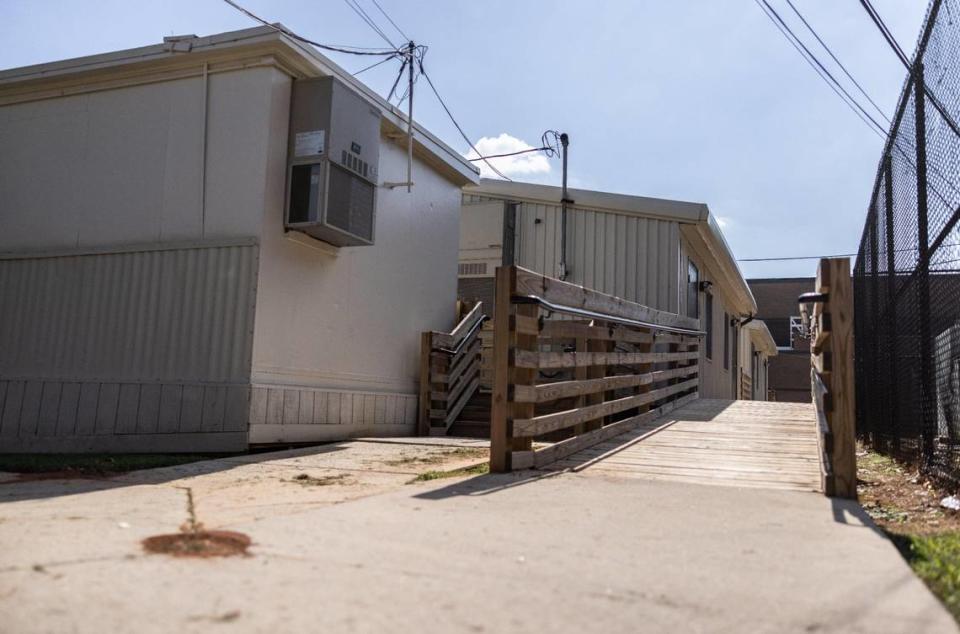2023 election: Mecklenburg voters pass NC record $2.5 billion public school bond
Mecklenburg County voters approved a historic school bond Tuesday night, guaranteeing some of the poorest neighborhoods in and around Charlotte will see new and renovated schools over the next several years.
The $2.5 billion Charlotte-Mecklenburg Schools bond, a record ask for a public school district in North Carolina, passed with ease.
With early in-person votes, approved mail-in ballots and nearly 97% of precincts reporting Tuesday night, 63% of Mecklenburg County voters chose “yes” to pass the bond and 37% chose “no.”
“Today, voters made a critical investment in our future,” said Janet LaBar, president and CEO of the Charlotte Regional Business Alliance that led the pro-bond effort. “This campaign has always been about bringing people together from every corner of Mecklenburg County to give our children, teachers, and community the schools they deserve. We are grateful to everyone who supported this important community effort as we look to build a better, brighter future for all.”

The bond will pay for 30 projects that Charlotte-Mecklenburg Schools officials say will improve building conditions, offer more academic options and alleviate overcrowding. The projects include new or renovated elementary, middle and high schools. Among them: Harding University High, East Mecklenburg High, North Mecklenburg High and new Second Ward Medical and Technology High schools.
Over the last four decades Mecklenburg County has mostly supported public education bonds, including the last one in 2017.
”The vote reflects what I’ve been hearing from the community, which is a recognition that investing in our children is an investment in our future,” school board member Jennifer De La Jara said. “We didn’t take any vote for granted though. Our whole board has been working hard.”
Who was behind CMS bond referendum?
The Coalition for a Better 2050 is behind the Charlotte Regional Business Alliance’s “Vote Yes for School Bonds” campaign, which spent hundreds of thousands of dollars to encourage voters to get behind the bond. That included paying for three well-known political consultants and flyers, radio spots and website development.
Jim Blaine, of the Raleigh-based firm The Differentiators, Morgan Jackson, of Raleigh-based firm Nexus Strategies, and Doug Wilson, founder of Alexander Wilson Consulting in Charlotte, were hired as the “best bipartisan advocacy team we can assemble to pass this school bond proposal,” LaBar told The Charlotte Observer in September.
Several local sports teams and businesses gave money to support the bond cause, according to campaign finance reports, including the Carolina Panthers, Charlotte Hornets, Atrium Health, Foundation for the Carolinas, Lowe’s and real estate groups.
The Coalition for a Better 2050 campaign’s $484,000 raised so far is about $110,000 more than the last CMS referendum in 2017. Then, the Vote Yes for Bonds campaign raised $370,075 before Election Day in 2017.
“At a time when the needs have never been greater, the voters of Mecklenburg County have sent a resounding message of support to the students and teachers of CMS,” said school board chair Elyse Dashew, who didn’t seek reelection. “I am feeling overwhelmed with gratitude right now.”
Tax increases for $2.5 billion bond
CMS officials say the bond will likely require property tax increases in 2025, 2028 and 2029. Those increases of 1 cent per $100 in valuation each will help pay for debt associated with the package.
The African American Faith Alliance and African American Clergy Coalition in Charlotte opposed the bond because of additional taxes. They said recent Mecklenburg property revaluations resulted in tax hikes that disproportionately impacted Black and brown communities in the crescent of lower-income communities in the north, east and west of the city. They say the bond will add additional taxes.
Want more coverage of Charlotte-area government and politics? Subscribe here for free to the Observer’s weekly CLT Politics newsletter and never miss a story.

